The comprehensive examination is designed to evaluate PhD students’ competence in criminological and/or sociolegal studies.
This exam takes the form of a major review paper. Students are required to read widely on a particular topic and identify and evaluate major theoretical debates and methodological issues. Students should provide an original, critical analysis of the literature and discuss possibilities for future work in their topic area.
Students are encouraged to consult the following journals for examples of high quality review papers:
1) Crime and Justice: An Annual Review of Research;
2) Annual Review of Law and Social Sciences;
3) Annual Review of Sociology; and
4) Psychological Review.
All of these journals are available through the University of Toronto library system. Most can be found in the Centre’s Library.
Examples of important review articles that have appeared in leading academic journals are also available from the graduate coordinator. These articles can serve as a template for the types of review essays required to meet the comprehensive requirement.
All PhD students must complete one comprehensive exam.
Exam committee
The comprehensive exam committee consists of a supervisor and at least one other faculty member from the Centre for Criminology and Sociolegal Studies, and may include cross-appointed faculty. A student’s comprehensive exam supervisor does not have to be the same as their thesis supervisor.
Topic selection and reading lists
Students are free to decide on the area that they want to study for their comprehensive exam. However, the final topic must be approved by both their faculty supervisor and the graduate coordinator.
Some students may decide to investigate a topic that is directly related to their doctoral research plans. It should be stressed, however, that this is not a requirement. Indeed, other students may select a topic that is totally unrelated to their thesis in order to broaden their intellectual horizons.
After deciding on a topic, the student, in consultation with their exam committee, must construct a detailed reading list upon which their review paper will be based. The final reading list must be approved by the student’s exam committee and the graduate coordinator.
Paper length
The final comprehensive review paper should be approximately 12,000 words – not including references.
Deadlines
PhD students should start working on their comprehensive exam immediately after completing their required course work (eight to nine months after starting the program).
Students should complete the comprehensive exam by mid-December of their second year of study (approximately 16 months after program commencement).
Students who have not passed their comprehensive exam by the end of their second year of study may be recommended to SGS for termination of the program.
Evaluation
Comprehensive exams will be evaluated on a “CR” or “NCR” basis. Letter or percentage grades will not be applied. All PhD students must pass the comprehensive exam in order to proceed with the program and earn their doctorate. Students who fail their comprehensive exam will be recommended to the School of Graduate Studies for program termination.


